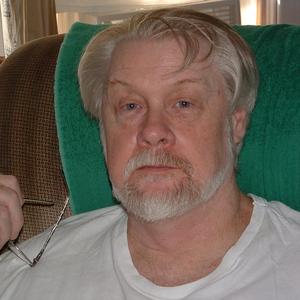Jesus seemed unperturbed. The Pharisee had put him on the spot with his bitter challenge. The Lord stepped up to the Pharisee and looked closely into his eyes. I could feel the power that passed between them as all of us stood on edge. The priests had the law of Moses on their side. They had authority and they used their power as a whip to beat men into submission. We both feared them and hated them. We knew better than to disagree with them. A man might be considered simple to openly challenge them. The conflict that raged between Jesus and the priesthood was news in every province. Men followed each development as if gathering around a common brawl. As I had aspirations toward the priesthood, I knew well their points. They had a solid case. How would the Lord respond?
Jesus spoke. “No man has seen the Father save he which is of God. I bring you the truth of God. He that believes on me has everlasting life.” He raised a hand and pointed to heaven, saying, “I am that bread of life. Your fathers did eat manna in the wilderness. Where are they? They are dead.” He spread his arms and turned for all to see, continuing, “This is the bread which comes down from heaven, that a man may eat thereof and not die.”
There was such emotion in his voice. It was as if he mourned our ignorance. By his gesture, I thought he had directed our attention back to the Synagogue, to the gathering of men into the word of God, to the holy bond of souls. I looked around among the other men and saw them nod their heads. They had received his words. Then a wonderful thought occurred to me. As the written word of God came to us from God, so, too, came to us the word in the flesh of a man. Jesus was a man possessed of God, a son of the first order.
Imploringly and almost mournfully, Jesus continued, “I am the living bread. I have come from the Father. If any man eat of this bread he will live forever. The bread I give is my flesh. I give it for the life of the world.”
It was a lot to take in. The congregation labored to receive his words. The priests argued among themselves. The question on every man's lips was how could a man give his flesh to be eaten? The law did not allow such a thing. I heard some voice the opinion that the Lord spoke metaphorically. I had never heard the Synagogue so active with discussion, so loud. The Lord had turned us upside down so that righting ourselves was a labor.
Jesus raised his hands and spoke again. “It is a truth. Unless you take into yourselves the flesh and blood of the Son of man, you have no life in you. Indeed, my flesh is meat and my blood is drink. Eat and drink of life that you may have life. You shall be in me and I in you and, as one on the last day I shall raise you up into eternal life.”
He paused there, I think, to allow us a moment to absorb his words as the meat and drink he spoke of. Men turned to one another. Some who were filled and satisfied spoke well with his neighbors. Some whose bellies had soured argued against the word as if trying to spit it out of their mouths. I turned and turned again, mouth open, watching men I had known all my life reduced to tender uncertainty as when a babe, brushed by the petal of a sweet flower, cries at the wound of a thorn. The Lord watched quietly until he knew who among us had understood. Then, he raised his voice and spoke.
“As the Father dwells in me and I in him, so, you must be one with the Son that you may live by the Son. This is that bread from heaven not as your fathers ate manna in the wilderness but now are dead. The bread I offer you this day is the bread by which you may live forever.”
Near me stood Peter and James. Beyond them stood Philip, Thomas, and the zealot. As the men of Capernaum argued among themselves, although not all, I saw the Master's eyes turn to the disciples behind me. Something caught in my heart as when the body gives painful warning of danger. It burned in me and I knew that Jesus knew something drew near. Unable to do anything but that, I turned just as Simon spoke.
“It is impossible,” said the zealot. “Who can receive such a saying?”
It seemed as though even the men who argued stopped to hear what the Lord would say in answer. Voices stilled one by one and two by two. While only the zealot had voiced his disbelief, some of the other disciples nodded their heads in agreement with Simon's doubt. I recall Thomas nodding his head and turning, shoulder to shoulder with Simon, to await the Lord's reply. The answer was not loud; there were no voices to speak over. I had never heard our Synagogue so quiet.
Jesus said to Simon, “Does this offend you? If you should see the Son of man ascend up to where he was before, what then? You will wish you had believed. Your problem is that you focus on the flesh to no profit. Only the spirit in a man makes him alive. Do not let your spirit die too. Have faith. From my spirit, I speak to you the words that will quicken your spirit with mine. My words are spirit and life.”
Simon sat heavily and hung his head in shame and confusion. Judas sat beside him to throw an arm across his shoulders like a comforting blanket. Peter took a deep breath as if he would speak but could not. No one spoke. Not a word was spoken although many mouths were open. In a still, sad voice, Jesus continued.
“Some of you do not believe. Is it because I have not told you the truth? No. It is because of the hardness of your own thoughts. You will not let yourselves believe. That is why I have told you that no man can come to me except the Father prepare him before. Those of you who do not believe were never meant to see salvation. You were always lost and will always stumble in the dark.”
It was at that point and, to my surprise, that many men threw up their hands and walked out of the Synagogue. I turned to the Lord with open mouth. He tilted his head slightly to one side as if to tell me he knew it would happen. Some of the men who walked out had been with us from the beginning as fellow followers and students of truth. I had grown comfortable in their company and was greatly saddened to see them turn away. I looked among the closest of us and saw that they were also shocked and confused. In my few years of life, I had seen nothing like it. There were not many of us left. Like myself, Peter stepped toward the Lord with mouth agape yet unable to speak the words that troubled our hearts.
Jesus stepped forward and placed his hands on Peter's wide shoulders. He looked in his eyes until Peter looked down. Then he called his name and Peter looked up.
He asked, “Will you also go away?”
I was standing near Peter when he lowered his face and answered the Lord. “To whom should we go? You have the words of eternal life.”
I found my voice and spoke for Peter. I said what I believed any of us would say. “We believe and are sure that you are the Christ.”
Then Thomas said, “The Son of the living God.”
Jesus put a hand to the side of Peter's head. He smiled at me and placed a gentle hand against my face. He stepped between us and gave an affectionate slap to the back of Thomas as the three of us turned with him to face Simon and Judas.
Jesus said to us, “It is I who have chosen you twelve, and yet one of you is a devil.”
Judas had looked up but when Jesus said, “One of you is a devil,” he lowered his face. I understood then. I knew that even those of us with great zeal could stumble and those of us with faith could fail. I was a young man then and I tell you this story now as a man much older. Those early moments changed my view of life. I now see life as a road. The road is open and fair with not one thing to hinder our steps. Nothing lies before us but the goal. The sky is bright and the light of truth illuminates our progress. Yet, that is not so for everyone. Along the road are fallen souls. Eyes closed, they grope along the side from bush to bush, their hands bleeding from the brambles. You see, not all of us walk in the same direction. Now, I have always had the strongest desire to help those on the sides of the road, but to reach the goal, one has only to move forward one step at a time, eyes open. In my long years, I have discovered what the Lord always knew. Those poor souls who never listen never will.











Comments (0)
See all